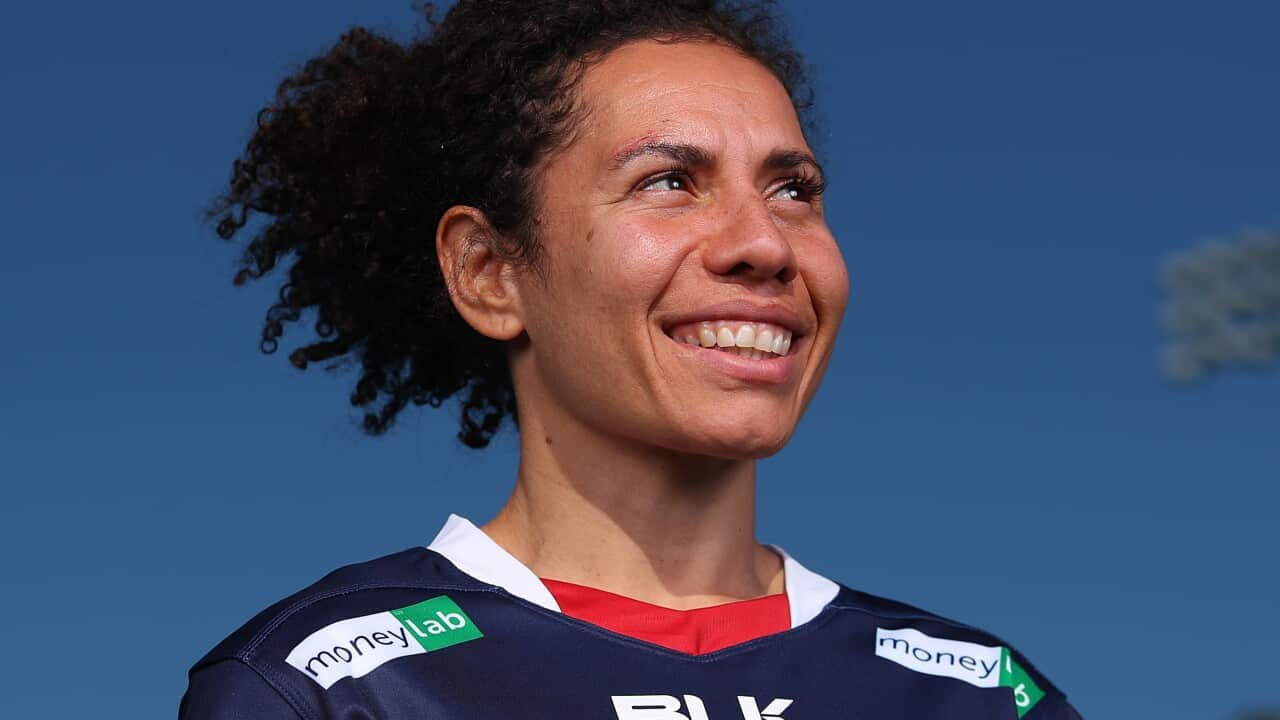This story is part of a series of ‘good news’ stories written by journalism students from the University of Technology Sydney (UTS).
Following your passion, particularly if you are a female athlete, can often mean having to work other jobs.
But for Melanie Kawa, captain of the Melbourne Rebels Super W rugby team (and sometimes COVID-19 contact tracer), her sporting ability is finally paying off.
Kawa, 36, has been looking forward to another season of super rugby, which began this month, with one big difference; she and her teammates are now getting paid.
Juggling jobs
Kawa was born in Papua New Guinea but her rugby career began in Australia in 2006 while she was studying for a Master of International Public Health.
“I found rugby in Brisbane, I was playing for the University of Queensland for fun, it was really social. A lot of the players there loved rugby and learning about it because most of us came from such different backgrounds,” she says.
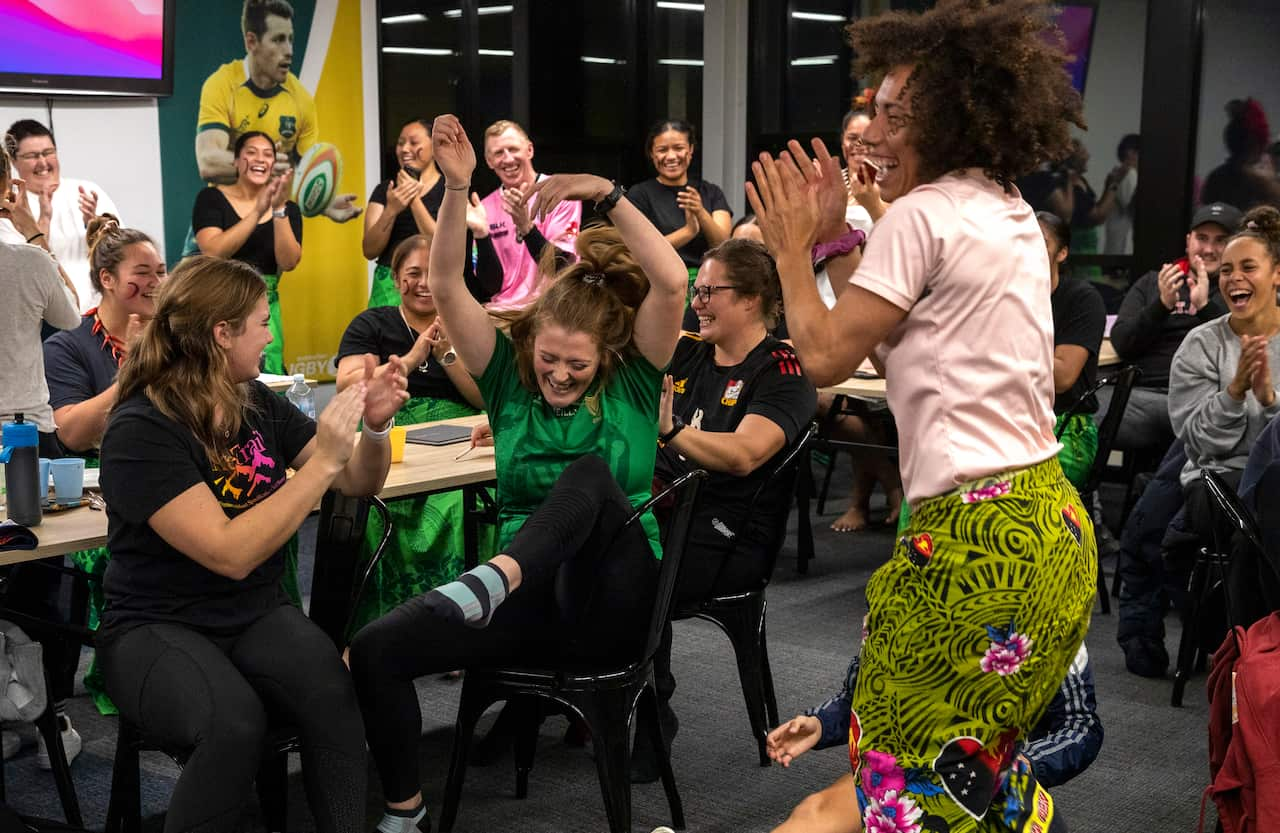
Kawa at a Rebels' Culture Night, a team bonding session where stories are shared while celebrating culture. Source: Getty / Kelly Defina
She moved to Melbourne in late 2019 “just for rugby” and now says: “I follow rugby around because it's the greatest passion of my life”.
I follow rugby around because it's the greatest passion of my life.Melanie Kawa
But soon after arriving in Melbourne, the COVID-19 pandemic would hit. The season was shortened and Kawa got stuck. She eventually found herself leading a team of a different kind.
“My background is in international public health. Fortunately, I found that my services would be useful here in Melbourne, so I became a contact tracer in mid-2020 to support the second wave.”
And she’s still helping out today, working in the COVID-19 coordination unit at the Department of Health.
Being paid to play
After Kawa’s first competitive seasons in Australia — short fixtures that were expected to be funded by the players themselves — she took the opportunity to play for a top European side, Montpellier Herault Rugby Club, where she would get paid.
It made her the first Papua New Guinean woman to play professional rugby in France.
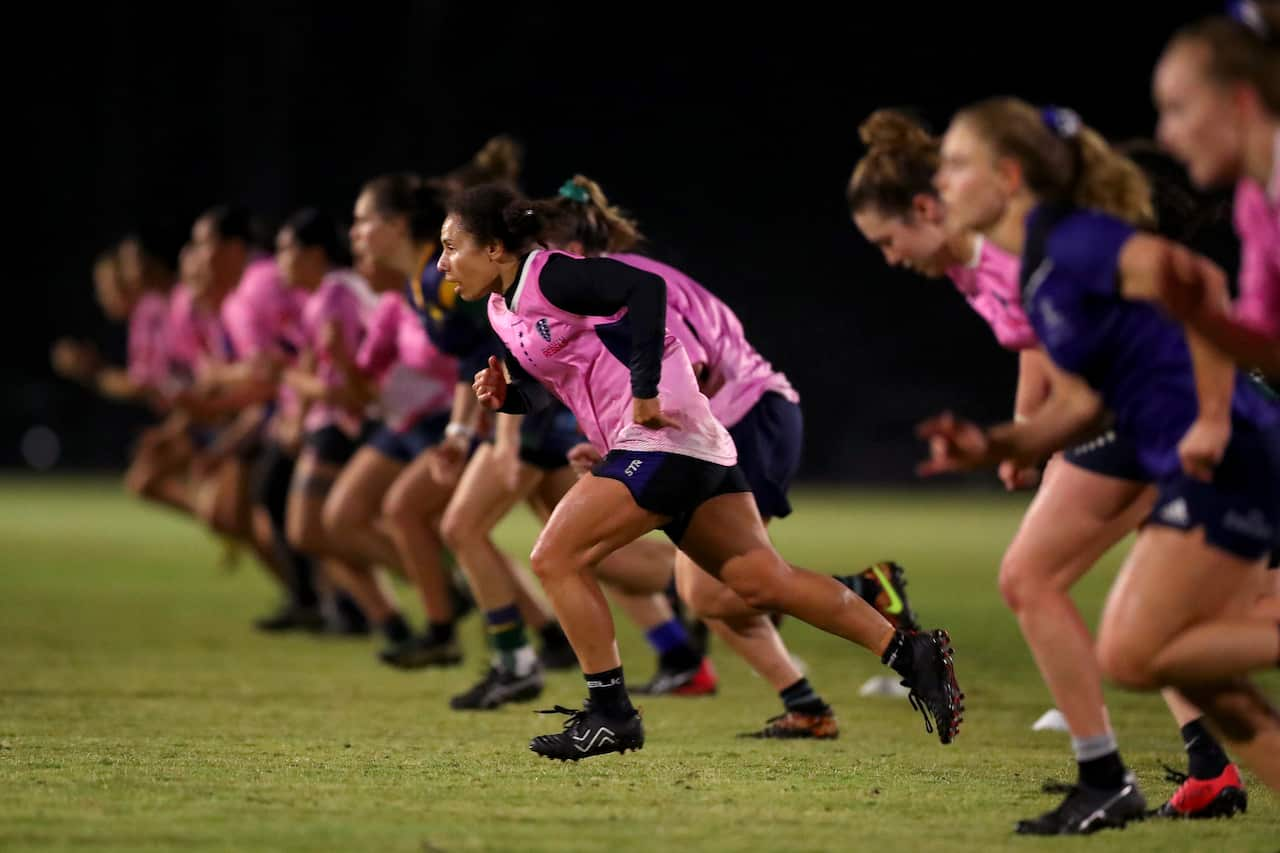
Kawa (centre) during a Rebels training session. Source: Getty / Kelly Defina/Getty Images
“When I was there, the actual government of France had negotiations with employers, so that the girls who had to sacrifice two weeks for a training camp in Paris, they [the French government] would almost subsidise their employees and say, ‘we'll pay you for her to come and train with us.’”
The Rebels playing group was told last November they were to become the first Super W rugby team to get paid for their time and talents in Australia.
Rebels match-day squad members are being paid $1,000 a game and their training costs are being reimbursed.
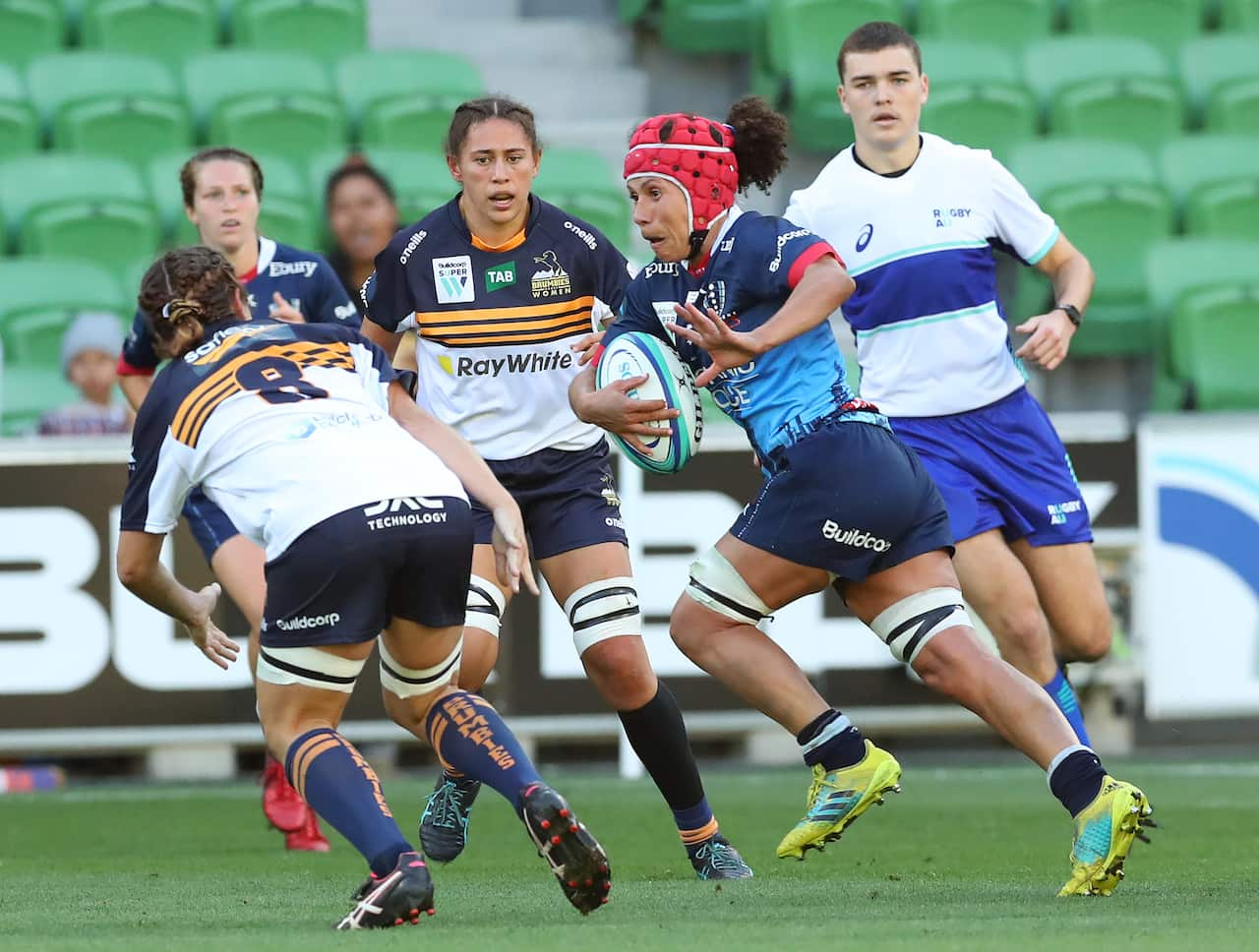
Kawa with the ball during a match against the ACT Brumbies this month. Source: Getty / Kelly Defina
"I believe that Rugby Australia are going to try and formalise this for the rest of the comp, which is the only logical thing to do.
“The club chose to just stand up first and say that ‘we're just going to do it’ because the club values us … but there's still so much to be sorted out.”
Kawa says that for women playing professional sports, getting paid isn’t just about paying bills, it is essential to enable players to perform to the best of their abilities.
The money pays for everything from fuel to get them to their training sessions, to massages to help them recover, she says.
“It would just make it so much easier to focus in and make arrangements in all of our lives to keep playing that game at that high level.”
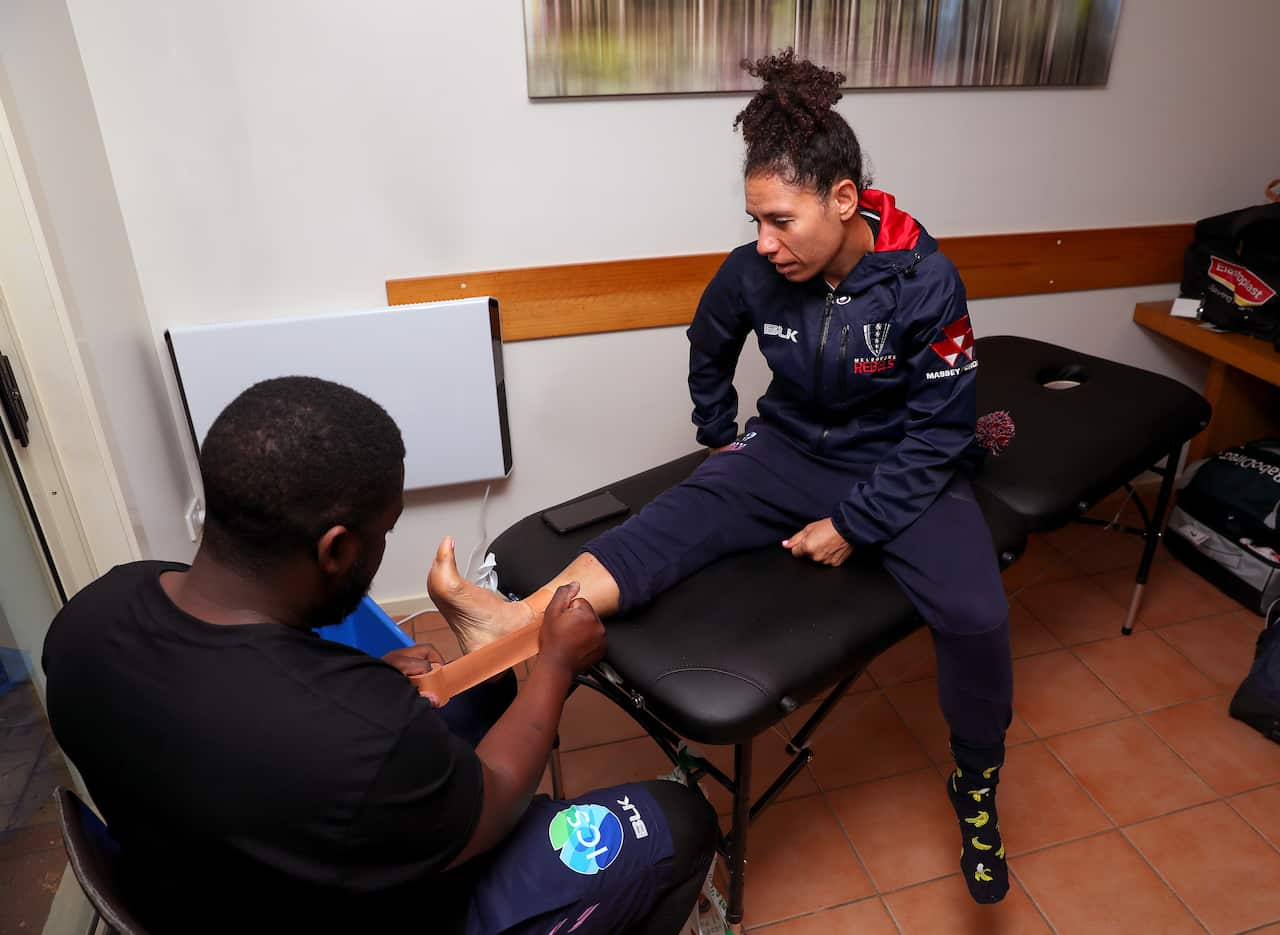
Kawa with the Rebels physio. Source: Getty / Kelly Defina
“Since I joined in 2020, we've had so many wins … Like we as athletes, women, are starting to see ourselves as professionals and the things that we've been training our whole careers for.”
‘Culture of love’
Rebels coach Alana Thomas says the decision to pay the players has been in the works for a while.
“Those conversations were had about wanting to make sure we looked after our players and that meant pushing them into that professional space and the pay.
“Then at our awards and presentation night at the beginning of December, the conversation was had that that was the express goal.
“Suddenly, some sponsors that were in the room decided they wanted to be a part of that … And then within an hour, it was pretty much decided that they were going to go with it for 2022.
Thomas adds: “We have this team culture of love. And I think that's love and valuing someone. You show it in so many ways, but I think the logical thing to do for professional women in sport is to value them by paying them as professionals.”
The logical thing to do for professional women in sport is to value them by paying them as professionals.Alana Thomas, Rebels coach
Kawa says paying players also leads to success for the club.
“We've already proved it in this country,” she says, pointing to the Australian women’s rugby sevens team which went professional in 2014.
“And then a few years later, they got a gold medal [at the 2016 Olympics].”
“I was like, ‘duh, like, that's what happens'.”
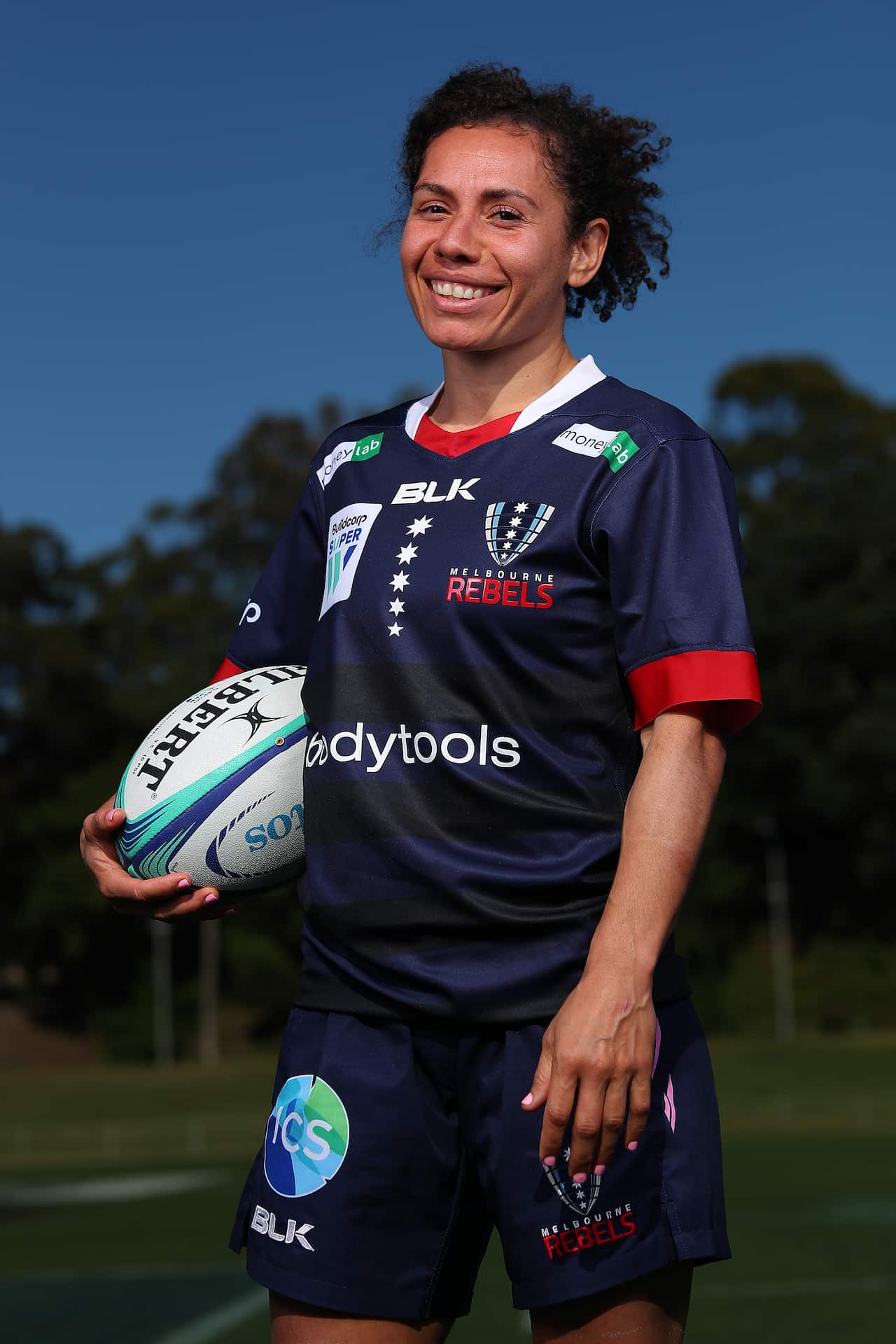
Kawa hopes to represent Australia as well as the Rebels. Source: Getty / Kelly Defina
Since Rugby Australia changed its regulation policy she is also now eligible for selection for Australia's women's national rugby union team the Wallaroos.
She hopes to get selected for this year’s world cup, and if not says she’s happy with the advocacy work she’s doing for the sport.
She believes the future of Australian rugby is in the women’s game and the next generation to play it.
“I couldn't even imagine what it would be like now for a young girl taking up the sport for the first time. Just going, ‘I know this player, this player'.”
“If I was anyone who loves sport, who loves a good contest and competition, I'd be looking at the women's rugby right now, for the pure fact that we've got so much space to go.
“That's not just playing-wise or skill-wise, it's business opportunities. You could be the [business] partner that said you were right there, just as the women turned professional.”
Maxwell Aldred is a third-year journalism student.
If you would like to share your story with SBS News or would like to write for us, email yourstory@sbs.com.au
Share
